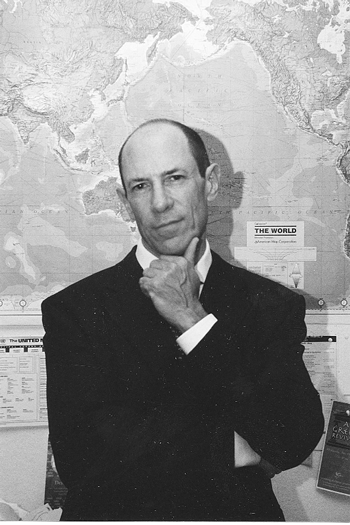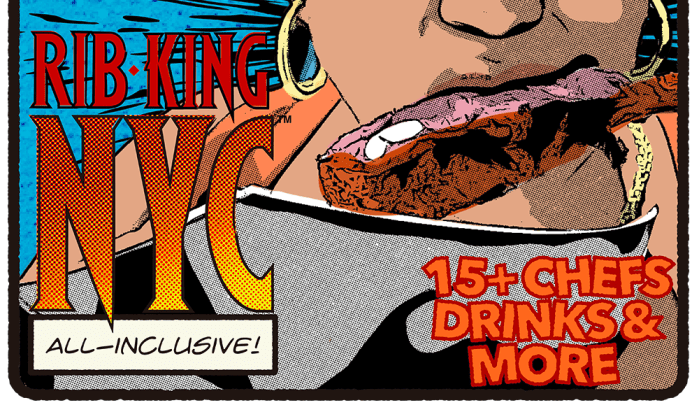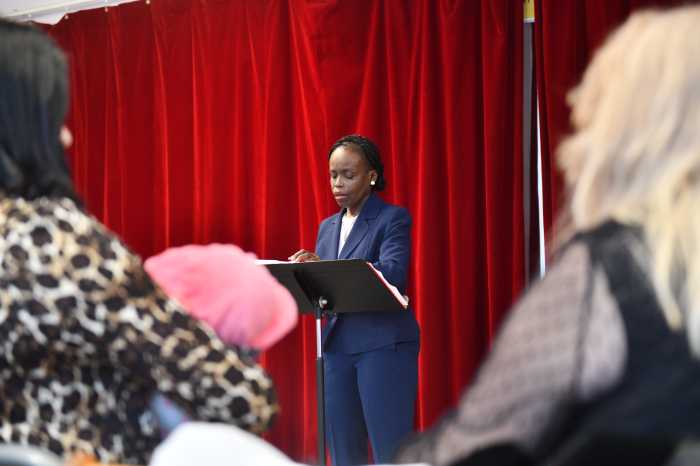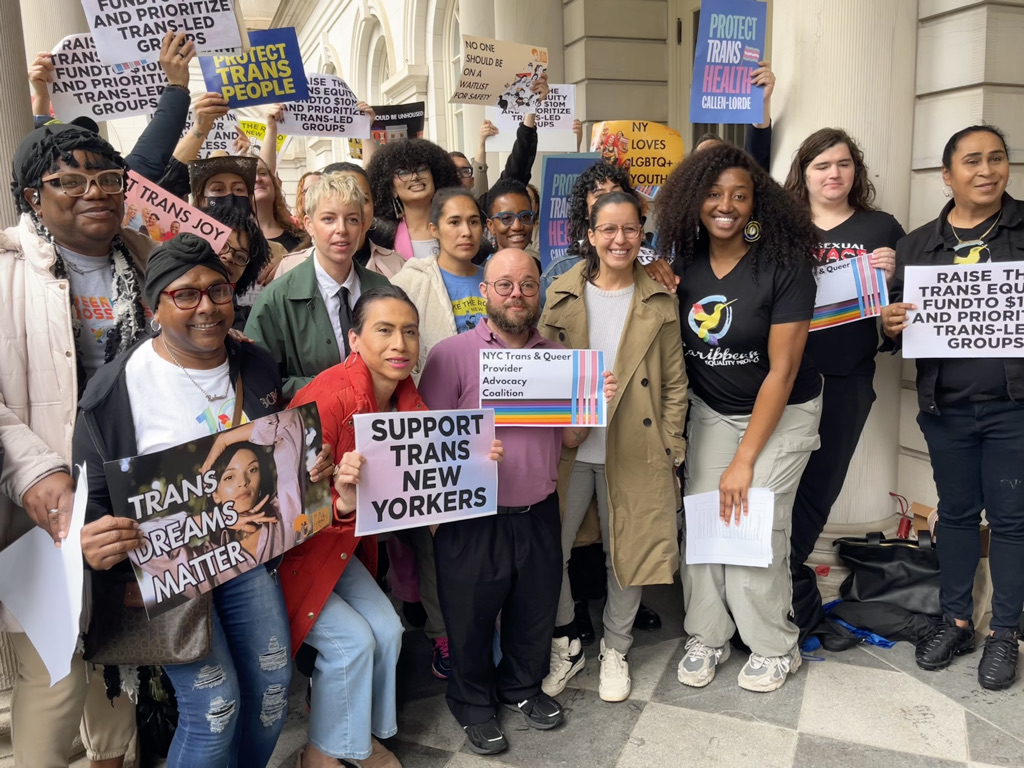By Lincoln Anderson
When the Village Independent Democrats voted last month to overwhelmingly endorse Jonathan Tasini over Hillary Clinton for U.S. Senator, they felt confident that their two state committee members, Larry Moss and Rachel Lavine, would back Tasini at the recent Democratic State Convention in Buffalo. But that wasn’t exactly how things turned out.
Now, there are reports that the two state committee members — who supported Clinton — will face payback from V.I.D. if they’re running for state committee two years from now.
On May 10, V.I.D. members voted 35 to 13 to endorse Tasini over Clinton, mainly because Tasini is supporting an immediate pullout of U.S. troops from Iraq, while Clinton continues to back a stay-the-course approach with no withdrawal deadline. Downtown Independent Democrats also endorsed Tasini.
Back in the Village after the convention, Yayoi Tsuchitani, V.I.D. campaign committee chairperson, was pushing for an emergency resolution to strip Moss of the club’s endorsement for the upcoming Sept. 12 primary election. Just as Clinton doesn’t represent her constituents’ position on the war, Tsuchitani said, Moss and Lavine aren’t representing their constituents, either.
V.I.D.’s president, William Stricklin, said the club’s leadership decided against an emergency resolution, since it’s too close to the primary — and because Assemblymember Deborah Glick would be “hurt” by it — but that Moss and Lavine’s rebellion won’t go unpunished.
“It’s definitely going to be on the agenda of our regularly scheduled meeting later this month,” Stricklin said. “I think basically it’s just going to be a public spanking. Larry and Rachel were given specific orders.”
As for the conflicting versions of what happened in Buffalo, Stricklin said, “I’m willing to believe Tasini over Larry here, because Larry’s got his face to save. He’s trying to position himself as more helpful than he really was. The last word I heard from Larry was that he couldn’t vote against Hillary. And Rachel said that she had a personal relationship with Hillary — and [was supporting her] because Hillary was a woman. Identity politics run amok.”
Tasini, who did a 600-mile bike ride before the convention, during which he collected 2,500 signatures on a petition against the war, hoped to force a discussion on the war at the convention by threatening to be nominated. He needed 10 signatures to be nominated, but had difficulty collecting this many from among the 400-some delegates. He said he was particularly disappointed the State Committee’s Reform Caucus didn’t give him more support. Moss, according to Tasini, delayed signing his nominating petition, waiting until the last moment, weakening Tasini’s leverage to force debate on the war.
Clinton’s people also reportedly lobbied six committee members not to sign onto Tasini’s nominating petition.
“I had 10, and then, basically, the Clinton campaign threatened people,” Tasini charged.
Had he been nominated, Tasini planned to have the two speakers on his behalf talk not about him, but about the war.
In the end, Tasini crafted a resolution with Clinton brokered by Moss that calls for a troop pullout as soon “as practical,” and which also condemns the war as “illegal.” But the resolution was presented and voted on after Clinton had been unanimously nominated and the committee members were already filing out of the convention center to catch planes and trains home.
Giving the traditional nominating speech, Senator Chuck Schumer had nominated Clinton for the party’s endorsement. Seconding Clinton’s nomination in another speech was City Council Speaker Christine Quinn.
However, before Clinton’s “coronation,” as Tasini describes it, Congressmember Jerry Nadler made a strong speech against the war, which Tasini feels, was inspired by his antiwar resolution.
For his part, Moss, former head of the State Committee’s Reform Caucus, takes credit for pushing through the new resolution on the war.
“There is so much concern in our district about the war and I helped write a new resolution,” Moss said. “And we discussed it with her [Clinton], signed off on it and Jonathan agreed not to put his name forward [to be nominated]…. I’m pretty proud of what we accomplished.
“I wrote the state party’s resolution against the war before we went to war,” Moss noted. “I have a great picture of myself with Mrs. Clinton in which I was pleading with her to vote against the war — this was 48 hours before the vote to go to war. The photo’s never been published.
“All the public officials in our district support Hillary,” Moss continued. “A lot of my objective has been to remain in dialogue with Mrs. Clinton.
“If you want that eyeball-to-eyeball shot of me with Hillary, I can send it to you,” he offered. “I think she’s moving her position on the war….”
Tasini tells a different story.
“Larry has one version of the reality and I have the other,” he said. “My goal at the convention was to have a debate about the war. I know I was not going to get the 25 percent [of committee members’ votes needed to automatically get on the ballot, eliminating the requirement to collect 15,000 petition signatures], and there was no reason to do a three-hour roll call vote for that. The deal was, if there was a discussion, if the resolution was brought up before the nomination, I would not go for nomination.
“They didn’t want a roll call vote, they didn’t want a challenge,” Tasini continued. “Larry refused to sign my nominating petition, stating he didn’t want to ruin his long-standing relations with the Clintons.
“The Reform Caucus is not a Reform Caucus,” Tasini accused. “It’s phony and no different in many ways than the machine. Clinton is for war, pro-death penalty, [anti-]flag burning.
“Many members of the Reform Caucus have been seduced into believing that they’ll have access to power,” Tasini said, “and this blinds them to where my opponent stands on the issues.”
Yet, in the end, Tasini said, “We made our mark by having a discussion on the war. It wouldn’t have happened if we weren’t there.”
At least one Reform Caucus member, though, Michael Farrin, of Coalition for a District Alternative, did back Tasini, and, in fact, was the first to sign onto his nominating petition. Farrin said he was “disappointed” there hadn’t been a more vigorous debate on the war.
Doris Corrigan, a state committee member from Chelsea and Reform Caucus member, said there was no way she was voting for Tasini, calling him “unqualified to hold office…a one-issue candidate.”
“But that one issue is pretty darn important — but, man, what an issue,” countered Stricklin.
Of Moss and Lavine’s disobedience, Stricklin said, “There will be repercussions.”
Lavine didn’t return a call for comment by press time.








































